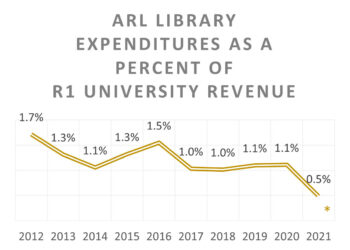
I am pleased to announce that I will be working with Deanna Marcum and Roger Schonfeld of Ithaka S+R on a project to survey Amazon’s sales to academic libraries. This research is being funded with the generous support of the Andrew W. Mellon Foundation. This project has been a long time a-coming, and I am absolutely delighted to be involved with it.
Readers of the Kitchen know that Amazon and library sales have become an obsession of mine. Publishers, like anyone who invests in things and makes things, want to know who is buying their products, but when a publisher ships a print book off to a wholesaler or retailer, there is very little feedback from the distribution channel. With Amazon the situation is particularly bad, as Amazon sells books to anyone and everyone, but releases no information as to where those books ultimately go. Publishers are kept in the dark.
It was therefore of great interest when a few years ago a colleague mentioned that Amazon had become one of the largest library wholesalers. This caught me by surprise; like most people, I had assumed that Amazon mostly sold books to individuals. But a few phone calls to librarians confirmed my friend’s account. The questions sprung to mind: Why are librarians buying books from Amazon? What else do they buy from Amazon? How is this trending? What is Amazon’s market share for library sales? What does that amount to in dollars?
In the background were another set of questions concerning academic books and university presses in particular. Most university presses list Amazon as their biggest customer and decry the decline of their library sales (which they estimate by looking at their sales figures to such wholesalers as Baker & Taylor, YBP, and Ingram/Coutts), but what if some of the growth at Amazon is actually a shift from one library supplier to another? In other words, are libraries cutting back on university press titles or are they simply switching from traditional wholesalers to Amazon?
We hope to find out the answers to these questions. We are in the process of preparing a survey that will go out to the universe of academic libraries at four-year institutions. That’s only one segment of libraries, but it’s a good place to start–and also a natural one considering the kindred missions of university presses and academic libraries. These surveys will then be followed up with a series of telephone interviews, with the goal of getting behind the numbers to find out why librarians make the decisions that they do.
The aim of this research is to get a portrait of one aspect of Amazon’s participation in the academic community. We hope that the many librarians who will be receiving the survey participate, and we urge anyone with questions or comments to post them here on the Kitchen or to write us offline.
We will write up the results of this survey and make it openly available. We view this as the first step in shedding some light on the black hole that is Amazon.
Discussion
19 Thoughts on "Researching Amazon and Libraries"
I suspect Amazon sells few, if any, ebooks to libraries – in spite of its emphasis on the new format and selling ebook readers.
This may be correct and I hope that this study will provide definitive answers on this point. There is a way to check out eBooks from Libraries that go directly to Kindle via Overdrive, see: http://www.amazon.com/gp/help/customer/display.html/?nodeId=200747550
This is the way it works at my local public library via Iowa Library Services for e-books and audio books (there are similar arrangement in neighboring states). It is fairly seamless. I appreciate the ease of the service and the genre and subjects coverage.
You might want to look at the extent to which libraries are using Amazon as a means for providing a purchase-on-demand service for print books. Given Amazon’s ability to deliver books quickly, this has become a realistic possibility.
I am wondering what the results will mean. Amazon could:
a) under price the other distributors and possibly drive some out of the market
b) as Amazon has done, it could start with books and then move the agreement to include its large and varied source of all things such as printer, computers, coffee room supplies and all things university. One stop shopping where books are a small part.
c) since amazon brokers both new and used (and alt formats) and “used” isn’t always “used”, it could drive those expensive monographs to more reasonable prices. And via ILL the print can be shared.
d) one also must consider what that might mean for journals as change is occurring
e) Given that libraries are going virtual wrt journals, who knows where Amazon is thinking.
The key here seems not to know what Amazon has done and is currently doing in book sales. What seems critical is to know where Amazon is going which is not really visible.
If one is surveying libraries, what other parts of the larger institution currently use Amazon from paper clips and printer supplies to larger items. What is the potential for larger purchases from the Amazon super store.
tom
tom abeles
Don’t forget to include the library jobbers themselves who also purchase from Amazon to supply libraries. There needs to be a distinction between the Amazon direct purchase made by the library and those purchases where the order is placed with the bookseller which in turn uses Amazon to supply. Such resellers also use Alibris and other sources.
A much needed study, though not the first: AAUP’s Marketing Committee did a survey of librarians in January 2008 that uncovered some information about libraries purchasing through Amazon. The report is available here: http://www.aaupnet.org/images/stories/data/academiclibrarymarketing2008.pdf
In the past Amazon sold quite a lot of market intelligence to publishers about who bought their books. The publisher could search by geography, customer class and comparable titles from other publishers.
My responsibilities over the years have changed so I do not know if Amazon still offers this intelligence. Perhaps someone else knows if they still do.
We rarely purchase print books for the Science Libraries at Carnegie Mellon. Most of our purchases are e-books.
We use Amazon all the time. We’re trying to reduce the time from ordering to shelf ready to a week. Having a book come in two days with our Prime account helps that greatly. Also helps with the lack of shipping costs, allowing us to purchase more books. I’m amazed that more of our traditional library jobbers aren’t looking at these issues (or maybe they are, three of our vendors have gone out of business this year!)
Just a note: the large wholesalers like Ingram and Baker & Taylor supply Amazon with a large number of their books – especially since ‘academic’ titles tend to be stored in these warehouses. Many Amazon orders are shipped directly to the customer from these warehouses, which are stocked with Amazon boxes. It isn’t always clear who is being cut out of the supply chain and how – and who is learning from whom (or as a friend from Africa used to say: ‘You don’t always never know.’ 😉
I get a lot of push back, re: Amazon book purchases, because they don’t supply downloadable MARC records. Amazon is great for rush orders and for our Kindles.
I occurs to me that it’s not that libraries are changing as much as it’s the demographics of the library personnel that is in flux. As library directors are heading into retirement, perhaps they are being replaced by Amazon-natives – younger people who already have the established habit of looking to Amazon first.
I would agree with the comments above about Amazon being used to replace traditional book suppliers – I’ve known libraries use them for any combination of {speed, price, reliability}. Price is probably not a factor when dealing with scholarly monographs, which probably are a major element of what you’re looking at here, but the other two are very telling particularly when print purchasing is driven by user requests.
On reflection, I’m a little surprised Amazon hasn’t actively tried to move further into this market – a few small alterations to their business practices, like allowing invoicing for selected users, would potentially open a lot of doors in institutions.
There’s actually a recent article from In the Library with the Lead Pipe that discusses a library’s reasons for switching primarily to Amazon: http://www.inthelibrarywiththeleadpipe.org/2014/responsive-acquisitions-a-case-study-on-improved-workflow-at-a-small-academic-library/
Some community college libraries now buy almost exclusively from Amazon, Chapters, Better World Books, ebay, etc. Why? speed and easiness. It has also become easier to find stock of older titles needed to support new programs. Who wants to wait 2-3 weeks, 4-6 months, when you can get it in 2-3 days.


